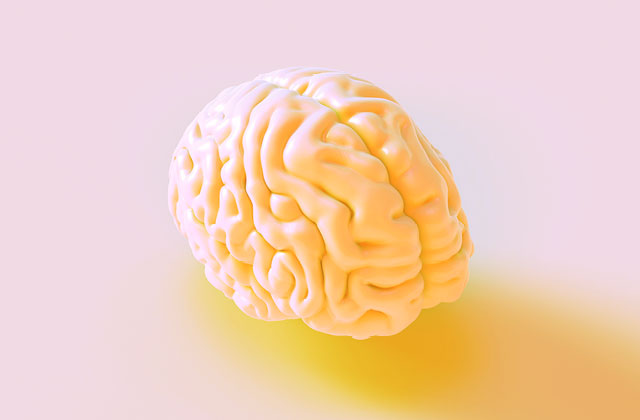
The many roles of magnesium
We should never underestimate the importance of magnesium, and the roles it plays in our general wellbeing. It is one of the more well-known and most available minerals available in supplement form, but there are still widespread deficiencies across the population, particularly among older adults.
Although there a no comprehensive studies monitoring the New Zealand population and its magnesium status, we know that our soils are low in magnesium. In the USA it’s estimated that two-thirds of all adults, and up to 90% of the elderly are not getting their Recommended Dietary Intake (RDI) of this essential mineral.
There are a number of reasons for this. These include the depletion of minerals in the soils through intensive farming, the prevalence of processed foods which further strip away the mineral content, inadequate diet and lack of exercise, and increases in stress and anxiety. The increased use of antibiotics, antacids and prescription medication can also have a detrimental effect in terms of magnesium absorption.
✔️ Calm nerves and anxiety
✔️ Reduces inflammation
✔️ Helps regulate blood sugar levels
✔️ Supports deep sleep patterns
✔️ Relieves muscle aches
✔️ Heart regulation
Magnesium is required for many biological functions within the body, including more than 300 enzyme reactions. Below are some of the benefits of magnesium and the crucial roles it plays in the health of our heart, our muscles and our brain. There are reasons why we need more magnesium when pregnant or when placing significant demands on our bodies in terms of physcial activity. It also explains how we can get more magnesium into our diet through the foods we eat and what we should consider when looking to supplement.
Magnesium for your heart
Adequate levels of magnesium are required for maintaining the function of the nervous system and neuromuscular transmission and activity. It helps with heart muscle contraction-relaxation and regulating the heartbeat. Along with other macro minerals such as calcium, sodium and potassium, magnesium affects the muscle tone in the blood vessels, which enables optimal blood pressure control, with a decreased risk of erratic heartbeat and coronary artery disease.

Our nerves depend on magnesium to help keep our arteries relaxed, and free from inflammation, which is the main cause of cardiovascular disease. This allows for good circulation, healthy arteries, and to ensure sufficient blood flow to all parts of the body, including our brain.
The World Health Organisation (WHO) estimates that one in three deaths are attributed to cardiovascular disease. Populations with high intakes of magnesium have a much lower rate of cardiovascular disease, diabetes, arrhythmia and hypertension compared to those with insufficient levels. Magnesium supplementation programmes have shown to have a significantly postive effect on the treatment of patients with cardiovascular disease, and researchers have advocated for a higher RDI of this essential nutrient for many years.
Magnesium for muscles and sleep
Magnesium can relax the muscles, our nerves and the mind. It also helps to avoid muscle cramps, headaches and can lessen the effects of stress, leading to a better quality of sleep.
People with low magnesium status can be tense and irritable, and suffer from cold hands and feet due to poor circulation. They can find it hard to calm the mind and relax, and get a proper night’s sleep.

“The best I’ve had. I feel the difference almost immediately. No digestive problems with this. Helps me sleep and relax in general.”
Lauren
Common symptoms of magnesium deficiency include muscle cramps, especially at night, as well as fatigue, insomnia, high blood pressure and heart disturbances.
Magnesium is best taken at night as it contributes to physical and mental relaxation, lessens the effects of stress, and when paired with a consistent night-time routine it can greatly assist with getting a restful night’s sleep.
Magnesium for your brain
Along with metabolic health and muscular function, magnesium is critical for brain health. It can help support cognitive function, especially among older adults who are at greater risk of deficiency.
It is also essential for both short and long term memory, enables concentration and learning, and helps with mood, behaviour and healthy aging.
Our brains require an enormous amount of energy – up to 20 percent of all the body’s energy. This requires a constant supply of magnesium, and the trillions of neural networks and synapses within the brain need magnesium to process information.

Magnesium has been shown to regulate the receptors in the brain associated with learning, memory, mood regulation. Abnormal NMDA receptor activity has been present in patients presenting with Alzheimer’s, Parkinson’s disease as well as depression and anxiety.
“Brilliant product. Sleeping much better compared to other magnesium products that I’ve tried. And my few muscle cramps have disappeared. Though the taste isn’t great, I choose to swallow it straight as the taste soon disappears, so it’s no problem.”
Miranda
Low magnesium status has been linked to anxiety, fibromyalgia, age-related memory loss and depression. In addition, the various medications used to treat depression can further contribute to decreased magnesium levels.
In 2017, to assess the effects of magnesium supplementation, an open-label, randomized, cross-over trial was done with 126 adults who had been diagnosed with mild-to-moderate symptoms of depression. (6) Supplementation was undertaken with 248mg of magnesium chloride per day for 6 weeks, compared to 6 weeks of no supplementation. It led to a clinically significant improvement in mood and anxiety scores, and positive effects were observed within two weeks. The magnesium chloride was also well tolerated, and 61% of participants reported they would use magnesium in the future.
In another study of more than 1,000 older individuals who were followed for 17 years, those with higher intakes of electrolytes such as calcium, potassium and magnesium had a lower risk of developing dementia. (7)
Magnesium for performance
As magnesium helps with regulating the heart and muscle contraction and movements, it is crucial for physical performance, and should be a part of any sports nutrition progamme.

Along with potassium, sodium, chloride and calcium, magnesium is an electrolyte, and is able to hold an electrical charge to supply these macro minerals to our cells accordingly.
Magnesium is depleted in the body through excessive sweating, and supplementation can be required to avoid muscle cramping and even migraines during exercise. As good quality sleep is so important to performance, maintaining sufficient levels of magnesium in the cells is necessary for athletes to enable recovery of both mind and body.

Magnesium when pregnant or breastfeeding
When pregnant or breastfeeding, your body requires even more vitamins and minerals, especially iodine and selenium, and also magnesium, all of which are in short supply in the New Zealand soils. Magnesium plays a big part in the baby’s development and growth, and the health of the mother during this important time.
Higher amounts of magnesium have been shown to relieve pre-eclampsia and hypertension in women during the latter stages of pregnancy, and pregnancy-induced leg cramps.
The RDI for Magnesium in women is 310mg per day, but increases to 360mg when pregnant or breastfeeding.
How to get more magnesium into your diet
Through eating a balanced, whole-food diet, you can obtain good levels of magnesium from food sources. The less processed foods you eat the better. For example, approximately 80% of magnesium is lost when wheat is refined into white flour, and all magnesium is lost in the refining of white sugar.
Green leafy vegetables and raw, unsalted nuts (almonds, walnuts) and seeds (pumpkin/sunflower) sweetcorn, dates, beans and bananas are the best plant-based sources of magnesium. Other foods such as wheat bran, quinoa, dark chocolate and seafood such as shrimps and pipis contain good levels of the mineral.

Gut health plays a significant part in the absorption of minerals and vitamins from our food, and so too with magnesium. If you experience digestive issues, your body may not be able to utilise the magnesium found in your foods.
“Couldn’t be without it. Have used this for years now. Great for headaches and deep sleep. Take it in a small amount of water just before bed and I always sleep peacefully.”
Lorna
Stress, excessive alcohol intake, excessive sweating, the use of prescription drugs, and advancing age are all factors that can lead to magnesium deficiency. If you’re unable to access sufficient levels from your diet, supplementation may be an option. Magnesium supplements can be found in many forms – capsules, tablets, epsom salts, and liquid mineral formulas.
Supplementing with magnesium
When considering supplementation, you should look for highly bioavailable options. These inlude organic forms such as magnesium citrate, or ionic liquid mineral supplements, which are more easily absorbed and tolerated by the body.
To generate magnesium ions, the compound must dissolve in water, but common supplements such as magnesium oxide do not dissolve and therefore cannot deliver magnesium ions into the bloodstream, and then into your cells and bone where it needs it most.
The RDI for magnesium is 310mg for females, increasing to 360mg when pregnant or breastfeeding. The RDI for adult males is 420mg.
When should I take it?
While it’s best taken at night as it contributes to physical and mental relaxation, it can be taken at any time.
Individuals with kidney disease, severe heart disease or on prescription medication should consult their health practitioner before taking a magnesium supplement.
Summary
Most of us could benefit from topping up our magnesium stores, and the health benefits it provides. Whether we’re taking it for our heart, our brain, to get more energy or improve the quality of our sleep, magnesium is responsible for more than 300 enzymatic reactions in the body, so there’s hardly any part of the body that doesn’t benefit.
-
 Magnesium Liquid Mineral$27.90
Magnesium Liquid Mineral$27.90
Disclaimer:
The information in this article is not intended as a medical prescription for any disease or illness. Nothing stated here should be considered medical advice. Use as directed. If symptoms persist, consult your healthcare professional.
Coory, D. Stay Healthy by supplying what’s lacking in your diet. 1992
Schauss, Alexander G. Minerals, Trace Elements, & Human Health. Life Sciences Press. 1995
MacDonald, M. Magnesium deficiency and the brain. 2021
MacDonald, M. Simply magnesium. 2020
Kidd. P. Magnesium: Cornerstone of nutritional health insurance. 2019
Tarleton EK, et al. Role of magnesium supplementation in the treatment of depression: A randomized clinical trial. 2017
Ozawa M, et al. Self-reported dietary intake of potassium, calcium, and magnesium and risk of dementia in the Japanese: the Hisayama Study. 2012.
Rosique-Esteban N et al. Dietary magnesium and cardiovascular disease: A review with emphasis in epidemiological studies. 2018.
Qu X et al. Magnesium and the risk of cardiovascular events: meta-analysis of prospective cohort studies. 2013.







